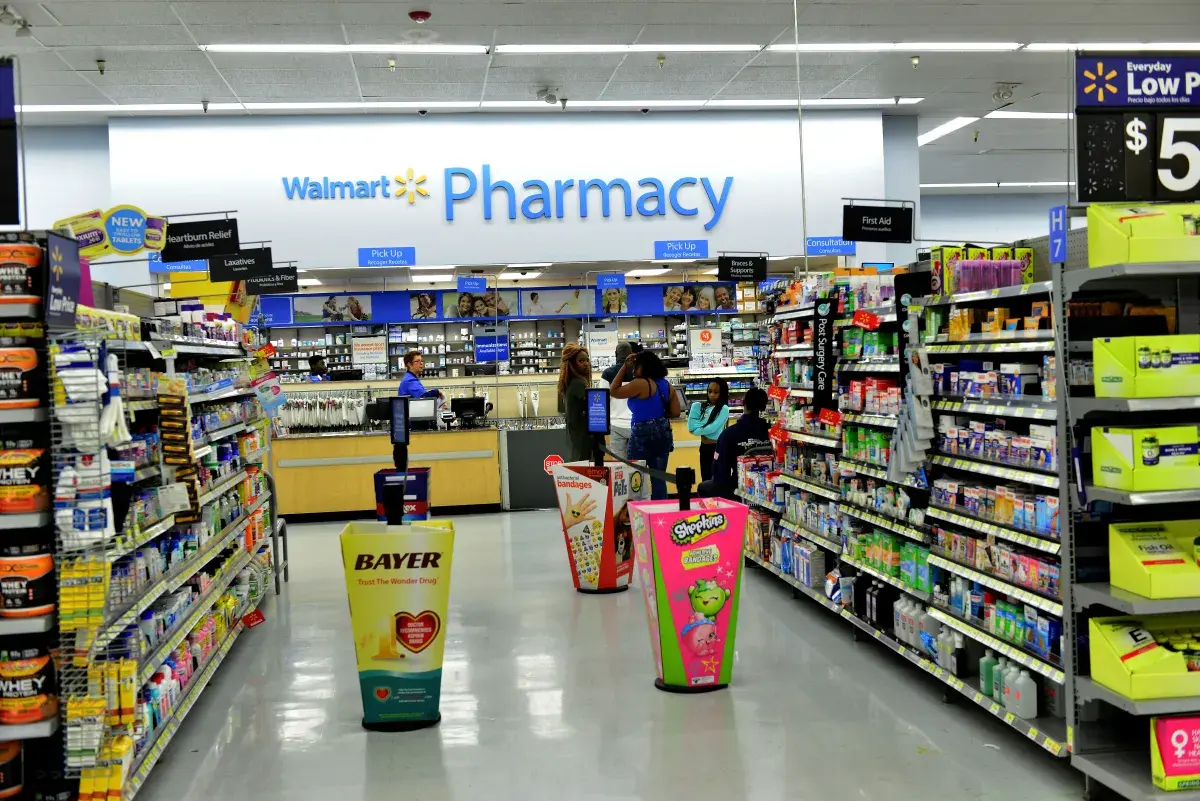
Already an established leader of the American pharmacy industry, Walmart has been continuing to expand its operations and plans to increase consumer accessibility to affordable, convenient healthcare services.
Walmart told Newsweek: “Walmart has over 45 years of experience providing quality care through pharmacy. We’re confident in our people-led, tech-powered approach.
“We’re committed to investing in the tools and resources our pharmacists need to provide care and build relationships, not just count pills.”
Why It Matters
Across the country, there are over 4,000 Walmart pharmacies, and they provide prescription medication and wellness products to millions of Americans, often at inexpensive or competitive prices.
Access to affordable drugs and medication is becoming increasingly more important to Americans as the costs of prescription drugs soar—particularly GLP-1 drugs, such as Ozempic and Wegovy.
The expanding role of pharmacists, such as testing and providing care for illnesses like strep, flu and COVID, also may help to shift some of the burden off primary care providers.
What To Know
In May this year, Walmart opened its largest centralized prescription processing facility to date, in Frederick, Maryland, which can complete up to 100,000 prescriptions a day and support more than 700 stores across 16 states and Washington, D.C.
Walmart hopes that its Central Fill network, a centralized prescription fulfillment system, will provide coverage to nearly 90 percent of its pharmacies by the end of 2026 in order to meet growing consumer demand.
The Central Fill operations aim to simplify the refill process by utilizing advanced technology to carry out various processes in order to free up pharmacists for customer care.
“These efficiencies create more time for our pharmacy teams in stores, which allows opportunities to better connect with patients,” Walmart told Newsweek. “With more time back in their day, pharmacists can work at the top of their license to provide clinical services and help improve health outcomes.”
In today’s digital society, where many prefer to shop online rather than visit stores, Walmart has also been delivering prescriptions and general merchandise with same-day delivery, a service which was made available in 49 states at the end of January this year.
Earlier this week, the company also announced that it was starting to use the same service to deliver refrigerated and reconstituted medications — such as insulin, GLP-1s and pediatric amoxicillin.
Walmart now delivers more than 90 percent of prescription medications directly to customers’ doors, and in the first year of Walmart’s Pharmacy Delivery service, 4 million orders were fulfilled. The fastest delivery was only nine minutes.
Outside of prescriptions, Walmart also provides testing and care for patients who walk in with illnesses such as COVID, strep and flu.
Walmart told Newsweek that over 2,700 of its pharmacies have been remodeled to include a Health Services Room, with nearly 700 added in the past year.
Lindsey Stagmaier, a pharmacy manager at one of Walmart’s locations in Chattanooga, Tennessee, told Supermarket News that this can “relieve some of the burden on primary care providers.”
She also said that pharmacists are already the primary immunizers in the U.S., and that she believes pharmacists could continue to have a “similar impact in other areas of healthcare in the next decade.”
“It’s opening up many opportunities for both associates and customers to improve their health,” she added.
The new services have resulted in an uptick in consumer demand. “Our focus on enhancing health services, such as immunizations, diabetes management, and testing and treatment, has attracted more customers seeking comprehensive care at Walmart,” the company told Newsweek.
What People Are Saying
Kevin Host, senior vice president of Pharmacy at Walmart, said in a statement on Monday: “We continue to unlock new levels of convenience while also broadening access to critical medications. Adding refrigerated prescriptions to our Pharmacy Delivery capabilities is the result of listening to our customers, identifying where we can create even better, seamless experiences and keeping the communities we serve at the heart of what we do.”
What Happens Next
Walmart has two additional centralized prescription processing facilities in development, one in Phoenix, Arizona, and another in Republic, Missouri, which the company anticipates will be operational in 2026, further expanding its Central Fill network.



